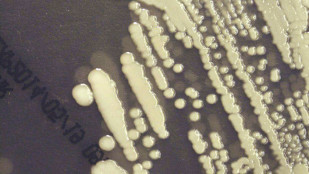 CDCMichael Farrell, the former head of the US Centers for Disease Control and Prevention (CDC) Bioterror Rapid Response and Advanced Technology Laboratory, who last month was reassigned in the wake of the biosecurity oversight that exposed agency scientists to anthrax, has now resigned. CDC spokesperson Thomas Skinner told The New York Times that Farrell’s resignation was voluntary. “It was his decision,” Skinner said.
CDCMichael Farrell, the former head of the US Centers for Disease Control and Prevention (CDC) Bioterror Rapid Response and Advanced Technology Laboratory, who last month was reassigned in the wake of the biosecurity oversight that exposed agency scientists to anthrax, has now resigned. CDC spokesperson Thomas Skinner told The New York Times that Farrell’s resignation was voluntary. “It was his decision,” Skinner said.
Farrell led the Bioterror Rapid Response and Advanced Technology Laboratory, which handles potentially dangerous materials including pathogens like Bacillus anthracis, since 2009. As The Guardian pointed out, Farrell is the first government employee to leave his post following a string of lab safety mishaps that have led to increased scrutiny.
In media interviews, Sean Kaufman, a former CDC employee who’s now president of the consulting firm Behavioral-Based Improvement Solutions, defended Farrell. “He’s a scapegoat and everybody knows that,” Kaufman, who was asked to testify at last week’s House hearing on biosecurity issues in government labs, told USA Today. “For [Farrell] to resign as a result of this is an indicator that they’re focusing on who instead of what. It was a culture that led to ...




















